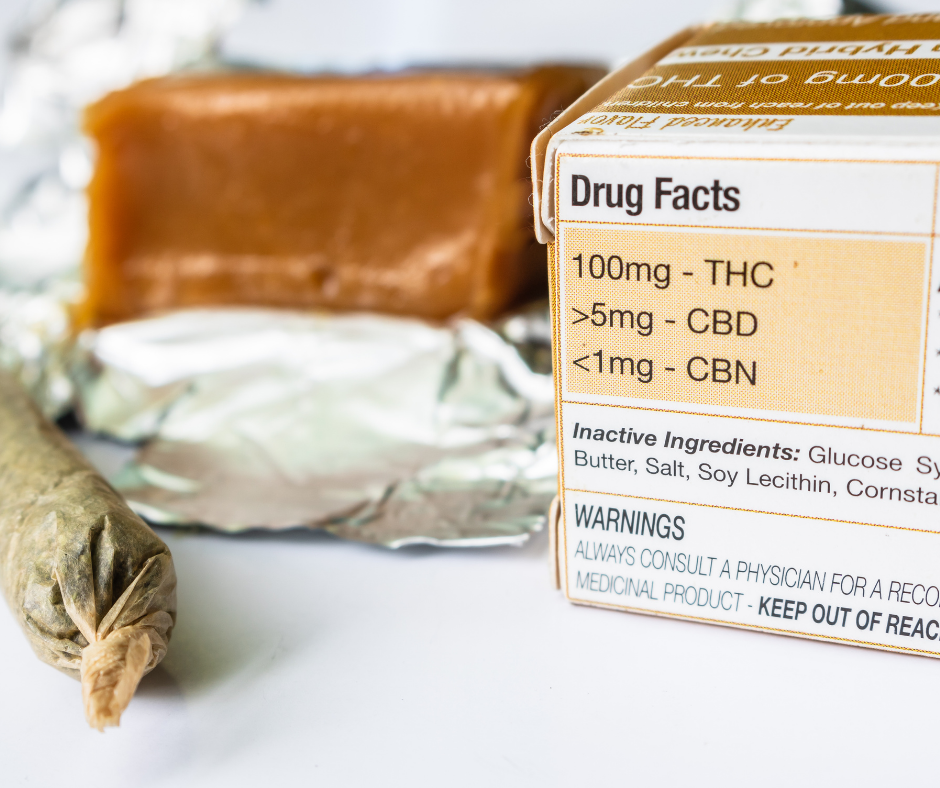Diamond Extracts
Discover the Difference Between THC and CBD
Discover the Difference between THC and CBD, and why these two active compounds found in cannabis are suitable for different uses.
In order to really maximize the positive benefits of using marijuana, and its derivatives and extracts, it is important to understand the various differences between CBD and THC.
While the chemical makeup of these two active ingredients found in the cannabis plant are reasonably similar, their effects and uses are quite different. And as the legal use of cannabis, along with products derived from its lesser-known relative, hemp, continues to grow, consumers are becoming increasingly curious about the differences and similarities of cannabinol (CBD) and tetrahydrocannabinol (THC).
So let’s take a look at the differences between THC and CBD, and how you can combine both of these compounds to produce the exact set of benefits you require.
What is the Difference Between CBD and THC?
It’s all about the chemistry. But before you have a flashback to heinous school laboratories and indecipherable chemical equations…we’re going to keep this really, really, REALLY simple! OK?
Molecular Structure
CBD and THC both have the same chemical structure, comprising 21 carbon atoms, 30 hydrogen atoms, and 2 oxygen atoms. In this respect, the C-H-O structure of THC and CBD are similar to that of sugar (and many other carbohydrates) which has 12 carbon atoms, 22 hydrogen atoms, and 11 oxygen atoms. So you can just think of the active ingredients in cannabis as being as sweet as sugar and just as useful!
But to return to the difference between CBD and THC. Although their molecular components are the same, the way that they are arranged is slightly different. This accounts for the differing effects that THC and CBD have on the human body.
Now…stay with us here, we’re almost done with the chemistry! THC binds with receptors in the brain called CB1 receptors. These receptors allow messages to be transmitted through the nervous system to control things like pain, immune function, stress, sleep: pretty much every function that occurs within the body.
When THC binds with a CB1 receptor, it produces a sense of euphoria or sedation: the “high” that users experience.
CBD, on the other hand, can not bind with CB1 receptors, UNLESS, the THC component of a cannabis product has bound to it first. This means that cannabis products that are low in THC will not produce the same “high” effect, but will still confer some of the other effects of cannabis such as pain relief, control of muscle spasms and reduction of nausea.
Phew…that was a lot of technical information! Chemistry class is dismissed so we can move on to the effects and benefits of CBD and THC.
Together in Electric Dreams
Research suggests that taking THC and CBD together, in combination with some of the other organic compounds found in the cannabis plant such as terpenes and terpenoids, is more effective than taking the CBD or the THC alone.
CBD may help reduce some of the unwanted side effects of THC, such as anxiety, hunger and sedation.
The Perfect Ratio
It is important to remember that cannabis, and cannabis extracts, affect everybody differently and that every user’s goal for cannabis use is different.
It is also worth considering that various combinations of side effects may be associated with THC and CBD use.
So in order that users can discover the perfect ratio of CBD and THC for them, the best method is to start with some low doses and experiment to see which combination provides the best set of effects for each individual’s use.
You can do this by utilizing different strengths of extract, and by trying out different methods of consuming the two compounds such as:
- Capsules
- Food products
- Vapes
- Topical liquids
- Gummies and extract candies
Studies have shown that THC and CBD may also work together in an interaction that has been called the Entourage Effect. So let’s take a quick look at that now.
The Entourage Effect: Using THC and CBD Together.
The phrase “entourage effect” was introduced in the late 1990s and is described as “a cooperative cellular response to the different chemicals and substances contained in cannabis extracts.”
The theory is that the different compounds present in cannabis work in concert to create a “sum of all parts” effect. It also holds that without all of the compounds being present, the full effect of this synergistic mechanism would not be felt.
It should be noted, however, that the entourage effect has also yet to undergo a rigorous scientific study. However, anecdotal evidence from cannabis users tends to back up the claims that there may be at least some basis to the efficacy of the entourage effect.
The Legal Stuff
Cannabis was legalized in Canada in October 2018. Under the new regulations, Canadians can legally grow up to four plants for personal use or possess up to 30 grams of dried cannabis.
The Canadian Cannabis Act does not distinguish between CBD and THC. However, American laws do. In the USA, the Controlled Substances Act states that if there is less than 0.3% of the THC within the CBD product, it is exempt from cannabis regulations.
With this in mind, and depending on your location you may need to check that your local laws to ensure that you will inadvertently get into trouble with The Fuzz.
THC versus CBD: The Medical Benefits.
THC and CBD share many of the same health benefits and can provide relief from a variety of similar conditions. However, because CBD lacks the psychoactive compounds that cause the euphoric effects produced by THC, some users prefer to use cannabinol-based products.
CBD can be used to treat conditions such as:
- Inflammation
- Nausea
- Depression
- Anxiety
- Seizures
- Pain
- Psychosis and mental disorders
- Migraines
- Inflammatory bowel disease
THC is also effective in treating the symptoms of these conditions. It can also be used to help with the following conditions:
- Glaucoma
- Insomnia
- Muscle spasticity
- Lack of appetite
THC versus CBD: Know the Side Effects.
Cannabinoids are well tolerated by the body, even in large doses. Research conducted by the World Health Organization (WHO) suggests that any side effects of using CBD are most likely the result of so-called “drug-to-drug” interactions between CBD and other medications being used by the patient.
The side effects that can be experienced by users of CBD products may include:
- Fatigue
- Changes in appetite
- Weight loss
- Diarrhea
- Dizziness
THC, on the other hand, has a number of temporary side effects including:
- Memory loss
- Reddening of the eyes
- Increased heart rate
- Dry mouth
- Slow reaction times
- Anxiety
It should be remembered that neither CBD or THC are poisonous, even in large doses, and the side effects, while possibly unnerving or worrying, do not constitute any serious adverse effects.
The use of THC over long periods of time, however, may be connected with negative psychiatric effects, although there is little evidence for this.
Know Your Compounds
Both CBD and THC have numerous health benefits. They are also considered to be safe compounds for people to imbibe for both recreational and medicinal uses.
Our staff at Buzzed Extracts are extremely well-informed about the differences between THC and CBD, their uses, benefits, and potential side effects. We can give you all the advice that you require in order to help you choose the best cannabis product for your particular needs.
We also have access to the latest research and developments into the uses and benefits of cannabis and its various extracts, so you can make an informed choice about the cannabis product that is right for you.

